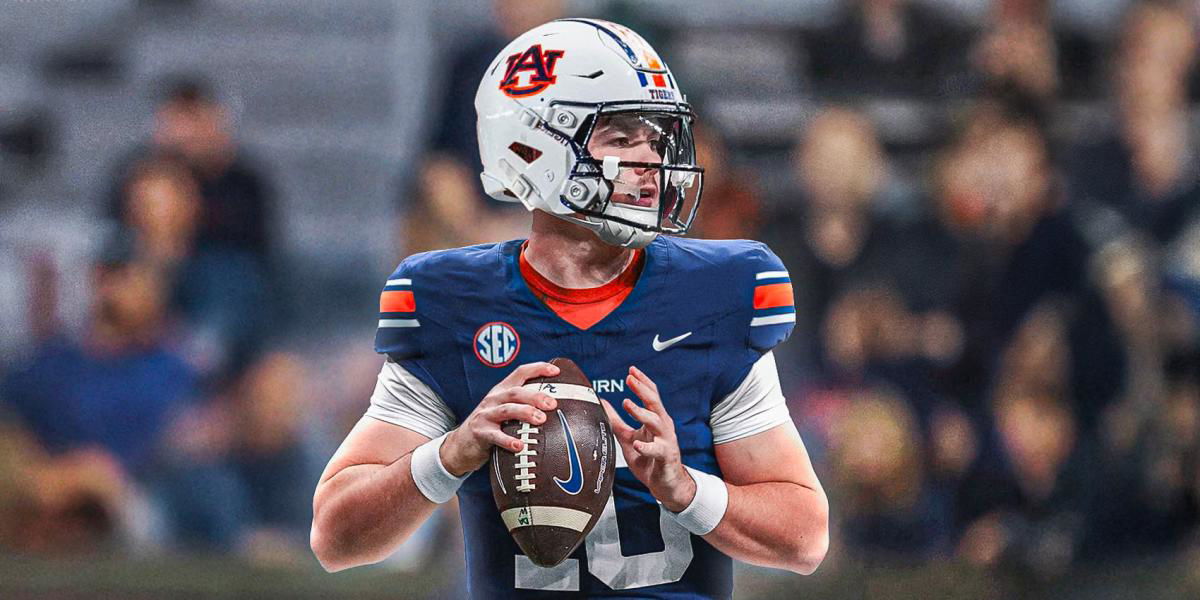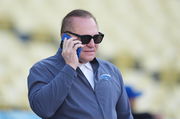

August 1 marked a seismic shift in college football. For the first time, schools could officially offer written revenue-sharing contracts to recruits. Signatures must wait till the official signing date though. Auburn, eager to embrace the post-House settlement era, jumped headfirst into this new NIL landscape. But the Tigers’ approach involving Jackson Arnold is already raising eyebrows among experts. How far can a school push the boundaries without tripping over the rules?
Watch What’s Trending Now!
Here’s the thing that’s catching NIL experts’ attention. In a post on X on August 22, Mit Winter highlighted a growing trend. “Instead of using third party NIL $ that in-house agencies/MMR partners bring to athletes as a way to add $ on top of rev-share payments, schools are using third party $ as a way to reduce/offset rev-share payments,” he wrote. It also added a screenshot of a statement of Auburn using them to reduce what they owe players like Jackson Arnold, Eric Singleton Jr., Cam Coleman, and Keldric Faulk.
“Sources say NIL funds from the field-logo deal will reduce revenue-share costs for the four players, starting this season,” the statement read. In other words, NIL money from the YellaWood field-logo deal is freeing up cash while technically staying within the new rules. And it raises questions about how far schools can push these mechanisms in the post-House settlement world.
ADVERTISEMENT

Imago
Sep 28, 2024; Auburn, Alabama, USA; Auburn Tigers running back Damari Alston (0) carries against the Oklahoma Sooners during the second quarter at Jordan-Hare Stadium. Mandatory Credit: John Reed-Imagn Images
The corporate angle comes from familiar Auburn alum and billionaire Jimmy Rane. His lumber company, YellaWood, signed a 5-year deal, estimated between $2 million and $6 million annually, to feature its logo alongside “Pat Dye Field” at Jordan-Hare Stadium. Justin Hokanson of On3 called it a mix of nostalgia, alumni clout, and corporate dollars. Beyond the logo, it’s clear Auburn is leveraging a trusted network to support both NIL flexibility and revenue-sharing strategy.
Jimmy Rane framed the deal as more than money. “Pat Dye revolutionized Auburn Athletics,” he said, recalling the legendary coach’s 1981 introduction. “He left no doubt about what he was about and what he intended to do. The reporter asked him, ‘Coach, how long is it going to take you to beat Alabama?’ With a cold-eyed, steel look, he looked at him and said, ‘Sixty minutes.’ You knew damn well he meant business.” Auburn AD John Cohen agreed, highlighting the symbolic nature of the sponsorship. But beneath the homage to Pat Dye lies a modern financial playbook, showing how college programs are exploiting NIL flexibility for strategic gain.
ADVERTISEMENT
Hugh Freeze’s poker game of written offers
Auburn coach Hugh Freeze sounded a cautious note the week after the revenue-share implementation. Despite the House settlement clearing the way for rev-share contracts, he says few schools have sent out formal offers. “It’s kind of like poker,” he told reporters. “There haven’t been a lot that I know of that really sent out something in writing, detailing exactly what they mean when they say, this is going to be your share of whatever – whether it’s NIL, whether it’s revenue-sharing. I still think it remains to be seen.”
ADVERTISEMENT
His skepticism isn’t idle chatter. He highlighted unknowns with outside NIL deals and questioned how schools can promise high school recruits third-party earnings without Deloitte’s fair-market evaluation, which only kicks in once the athlete is on campus. Hugh Freeze credited John Cohen for preparing for these opportunities, but admitted uncertainty remains. Even with new rules, the landscape is messy, and promises can’t always be verified. Auburn might be on the cutting edge, but the experiment carries risk both for the players and the program’s credibility.
Timing is everything. Auburn opens the 2025 season at Baylor on August 29, aiming to convert NIL flexibility into on-field success after four straight losing seasons. And Auburn isn’t alone. LSU, Tennessee, South Carolina, Arkansas, Missouri, Kentucky, and Vanderbilt are all embracing corporate field sponsors. Logos are popping up everywhere, but clear rules on revenue-sharing and third-party deals remain murky.
Top Stories
How Much Did Aryna Sabalenka’s Australian Open Jewelry Cost? Designer and Materials Explained

Is Elena Rybakina Dating? All You Need To Know About WTA Star’s Boyfriend

Patrick Reed Pays a Heavy Price for Exiting LIV Golf as Worrying Update Surfaces

Tiger Woods Told to Seek Bryson DeChambeau’s Help as $500M Golf Project Hits a Rough Patch

Blue Jays Told to Thwart Dodgers’ Plan After Scott Boras Pushes 24-Year-Old Star to Reject Reds’ Historic Deal

UT Tyler Athletics Announces Brittany Mahomes’ Induction Into 2026 Hall of Fame Class After Remarkable Career

ADVERTISEMENT
ADVERTISEMENT
ADVERTISEMENT
ADVERTISEMENT
.png)
.png)
.png)



